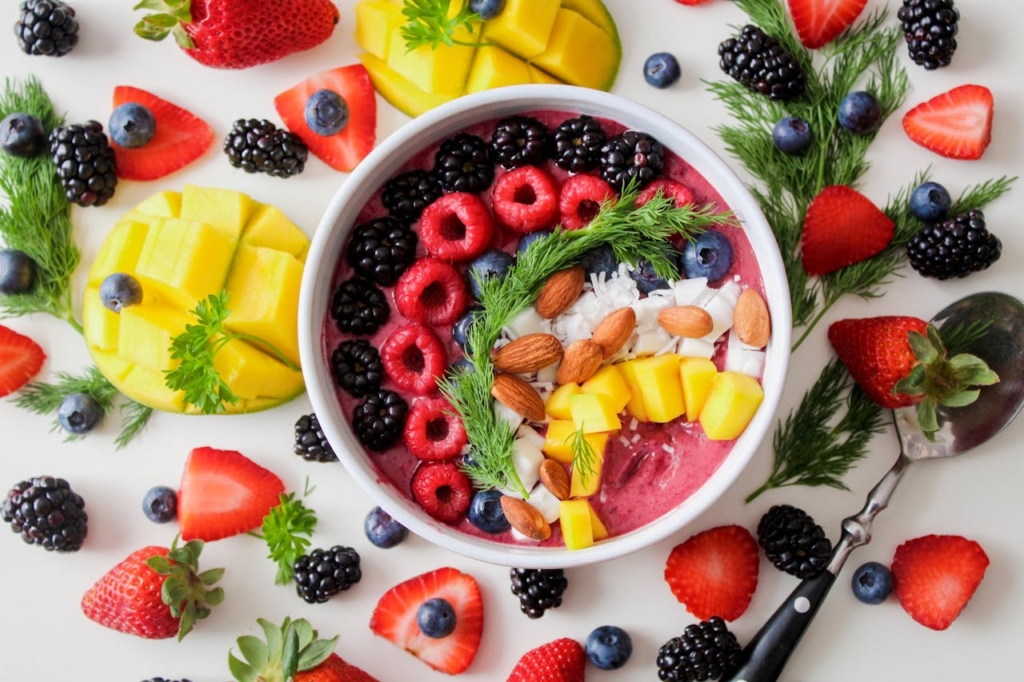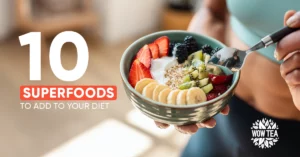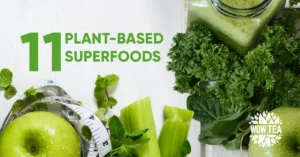The term “superfoods” has gained significant popularity among people who care about their health.
These nutrient-packed foods promise improved nutrition, more energy, and better overall well-being.
But what exactly are superfoods and why should they be a part of your daily diet? Let’s delve deeper into understanding these health-boosting wonders.
What are superfoods?
The term “superfood” is not strictly scientific, but rather a marketing concept. It refers to foods with an exceptionally high nutrient content that promotes health and well-being.
Historically, many superfoods, such as turmeric and quinoa, have been an integral part of traditional diets for centuries.
Nutritional profile
Superfoods are distinguished by their:
- High levels of nutrients: full of vitamins (such as vitamins C and K), minerals (iron, calcium) and antioxidants.
- Low-calorie count: Rich in nutrients without unnecessary calories.
- Functional Benefits: Known for properties that support various bodily functions, from boosting immunity to improving brain health.
The science behind superfoods
Research supports the health benefits of many superfoods:
- The antioxidants in blueberries and green tea fight free radicals, reducing inflammation.
- The omega-3 fatty acids in salmon and chia seeds support heart health and brain function.
- The polyphenols in dark chocolate are linked to lowering blood pressure and improving mood.

Why do we need superfoods?
The health benefits of superfoods
Including superfoods in your diet offers numerous benefits:
- Immune support: Vitamin C in citrus fruits strengthens immune function.
- Antioxidant protection: Fights oxidative stress, reducing the risk of chronic diseases.
- Gut health: Foods like yogurt and kimchi provide probiotics for a healthy microbiome.
Prevention of chronic diseases
Superfoods can play a vital role in reducing the risk of diseases:
- Heart health: Quinoa and flaxseed help lower cholesterol levels.
- Diabetes Management: Sweet potatoes and leafy greens stabilize blood sugar levels.
- Preventing inflammation in the body: Antioxidants in berries reduce DNA damage and promote cell repair.
Mental health and energy levels
Some superfoods improve mental clarity and fight fatigue:
- Brain boosters: Walnuts and dark chocolate improve cognitive function.
- Energy enhancers: whole grains and bananas provide a sustained release of energy.

Examples of popular superfoods
Leafy greens: Kale, spinach, and Swiss chard
- Benefits: Rich in vitamins A, C and K, iron and fiber.
- Easy to use: Add kale to smoothies and use spinach as a garnish.
Fruits: Blueberries, Acai Berries, and Citrus Fruits
- Antioxidant power: Protects cells from damage and aging.
- Tips for taking: Add blueberries to your oatmeal or enjoy acai bowls for breakfast.
Whole grains and seeds: Quinoa, chia and flaxseed: whole grains: chia, flaxseed and seeds
- Nutritional profile: High in fiber, protein and omega-3 fatty acids.
- Use: Add chia seeds to yogurt or use quinoa as a base for salads.
Other superfoods: Green tea, turmeric, and dark chocolate
- Unique properties: Green tea speeds up metabolism; turmeric fights inflammation; dark chocolate improves heart health.
- Daily Use: Drink green tea in the mid-afternoon or sprinkle turmeric on roasted vegetables.
How to include superfoods in your diet?
Meal ideas:
- Breakfast: Smoothie with spinach, banana and chia seeds.
- Lunch: Quinoa salad with kale, avocado and citrus dressing.
- Dinner: Grilled salmon with sautéed spinach and sweet potatoes.
Choosing superfoods
Superfoods are an excellent addition to a balanced diet, offering a natural way to improve your health and well-being.
By choosing a variety of nutritious foods, you can improve your energy levels, protect yourself from disease, and maintain sustainable eating practices.
Start small – add a handful of spinach to your smoothie or swap white rice for quinoa. Your journey to better health begins with these small but impactful steps!
Frequently Asked Questions About Superfoods
Foods that are extremely rich in nutrients and offer significant health benefits are called superfoods.
Yes, but only as part of a balanced diet. They are not stand-alone remedies but complement overall nutrition.
Although they provide natural nutrients, superfoods cannot replace specific supplements for deficiencies or medical conditions.








